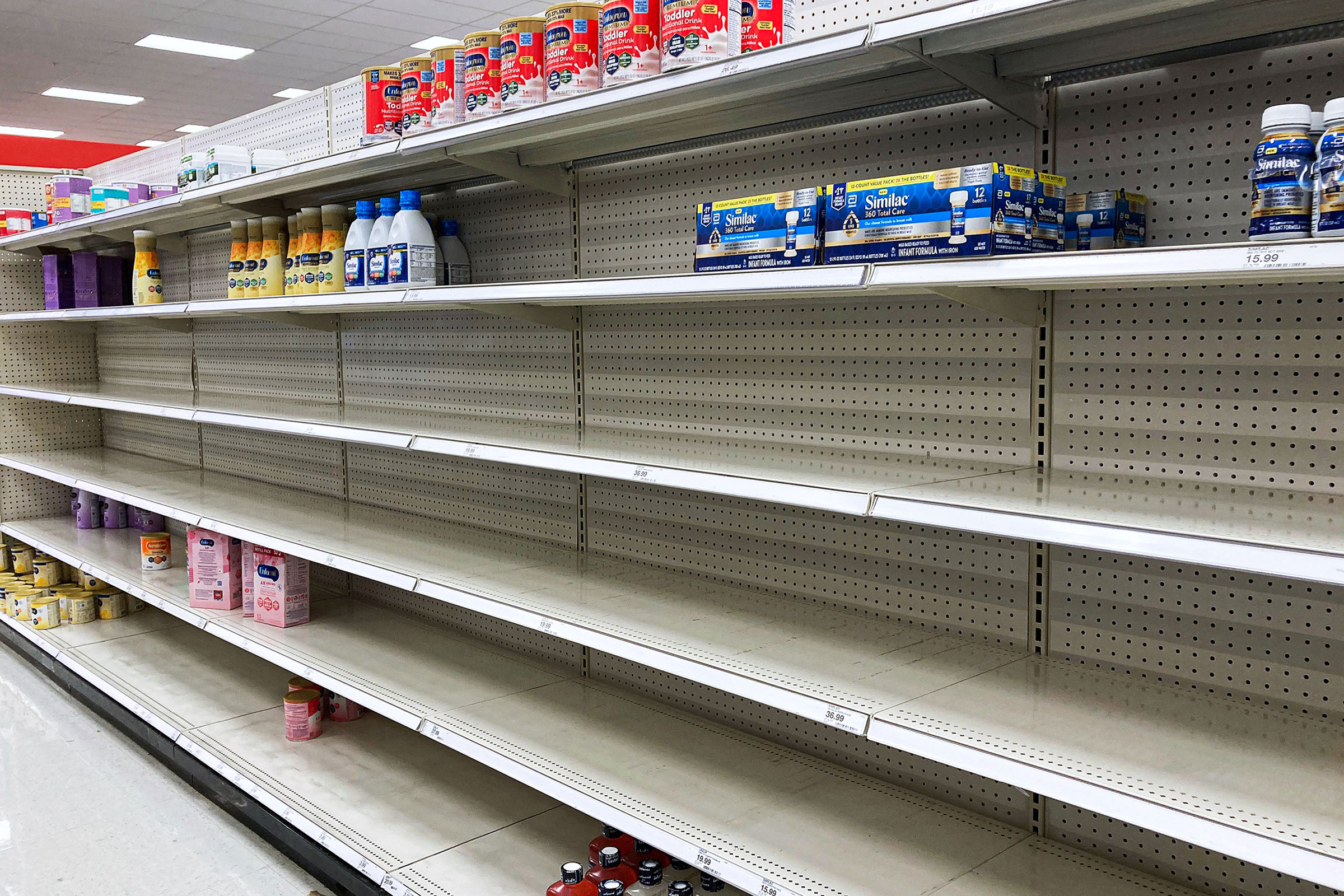
As if parenting during a pandemic weren’t already difficult enough, parents of infants are now facing a baby-formula shortage across the U.S. Supply-chain issues that have affected various industries made baby formula scarce. But the situation grew dire when the Abbott Nutrition, the nation’s largest baby formula manufacturer, recalled several lines of powdered formula after at least four infants were hospitalized for bacterial infections. Two of them died.
Now shelves in pharmacies and grocery stores lie bare. Products are backordered or unavailable on Amazon. And major retailers like CVS, Walgreens, and Target have begun to limit the number of baby-formula products that customers can buy. Retail software company Datasembly found that 43% of formula products were out of stock in 11,000 stores across the country the week ending in May 8, up from 11% at the end of November 2021.
For many families formula is the only option, as not every parent can or chooses to breastfeed. Some mothers cannot generate enough milk to fulfill their child’s nutritional needs and must rely on or supplement with formula. Other mothers choose not to breastfeed because of pain or discomfort. Many mothers cannot breastfeed or must stop breastfeeding because work keeps them separated from their baby much of the day. And families who adopt or use a surrogate cannot produce milk.
Families with babies who have allergies, gastrointestinal issues, or metabolic disorders and require a certain type of formula for their nutrition have been acutely impacted by the run on specific brands. And families who rely on federal assistance programs like the Special Supplemental Nutrition Program for Women, Infants, and Children (WIC) have also been disproportionately impacted: Parents who qualify for those programs rush to find the specific brands of formula the government will subsidize, while higher-income families who are willing to pay for more expensive, often organic brands or pay high premiums for breast milk have found other ways to feed their babies.
Read More: COVID-19 Is Making New Moms Feel Even More Pressure to Breastfeed
Despite manufacturers’ assurances that they would step up production, formula remains hard to find. On Thursday, the Biden Administration said the U.S. will increase baby-formula imports in an effort to ease nationwide shortages. The Food and Drug Administration will announce specific actions to boost formula imports in the coming week.
Parents who spoke to TIME said they drove across their cities and states in search of the brand of formula that their baby needed for medical reasons or because it was covered by WIC. When they did find tubs, they struggled with how much to stockpile for the future and how much to leave for other parents. Some did find hope in Facebook groups where parents with extra formula offered to sell or gift it to those in need.
Here are the experiences of five parents who have struggled with baby-formula shortages.
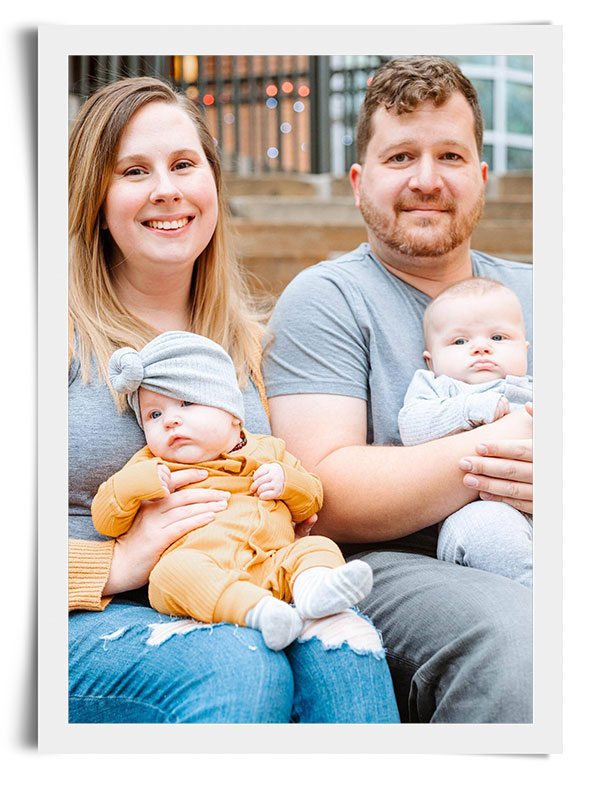
Mary Summers, 27, Columbus, Ohio
When I had my twins eight months ago, I was planning on trying to breastfeed. I knew that it was going to be a lot of work because there’s two of them, not just one. I breastfed my first two children, so I thought, I can do this. But in the hospital, we were having issues with latching with both twins. So I decided that it wasn’t worth the stress and that we would just formula feed. If I would have known then that we were going to be going through the shortage, I would have just pushed through and breastfed for as long as I could.
The big cans of formula last us about a week. Maybe less. Our baby boy, especially, he’s a chunk. He’s got rolls for days. So he already is eating us out of our house. He just sucks it all down. We spend about two hours a day looking for formula. I’m losing sleep over it. My twins are my third and my fourth, so I’ve been through parenthood for awhile. But this has probably been the most stressful thing I have ever gone through with any of my children, even during the start of the pandemic. I would have figured that this would have happened then instead of now.
Read More: My Kids Can’t Get Vaccinated Yet, and I’m Barely Keeping It Together
The shelves are empty pretty much every time we go to the store for about two months now. There’s a lot of people here who are on assistance, and in Ohio typically the only formula that is covered with assistance is either Gerber or Similac. There’s a lot of people out there who use Similac [which is made by Abbott Nutrition], and now that there’s been a recall, they’re all switching over to Gerber. And once that runs out, then they start taking anything they can. The Walmart brand and Target brand—that’s all gone. You have to drive 45 minutes outside of Columbus before you can find formula.
My husband and I are part of a whole bunch of different Facebook groups now, and we post asking people from all over the country if they come across formula to ship it to us. We’ve gotten four or five shipments of different formulas from a family in Pennsylvania and another family out in Arizona. There are people out there who are buying up the formula there is even though they don’t need it and selling it for $10 or $15 more than it costs through the store. I feel like they’re taking advantage of parents because they know we need it to survive.
I’m stressed. I’m overwhelmed. I’m always trying to figure out, What are we going to do if we can’t find formula? Because they suggest you don’t switch your infant over to regular milk until after one years old. So we still have three and a half months to go. I guess even though it’s not recommended, we’re just going to go ahead and switch them over to regular milk if we run out.
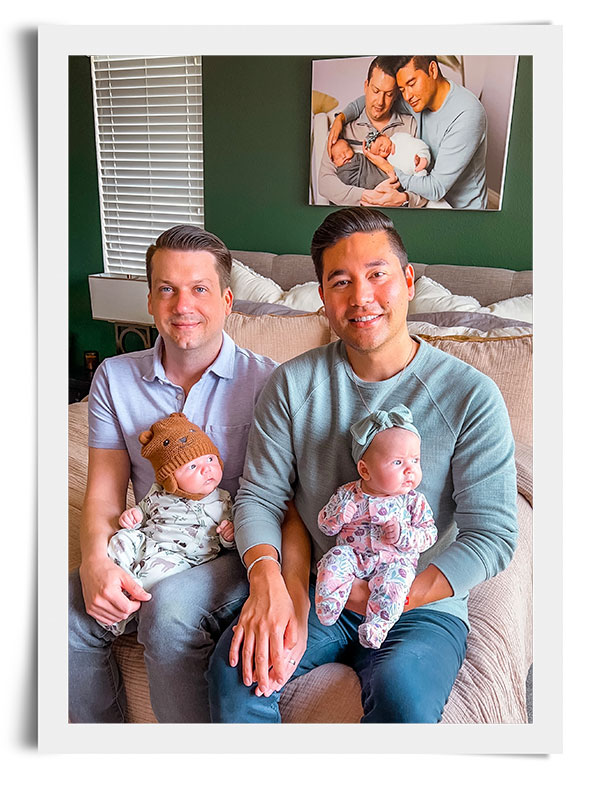
Bryan Lambillotte, 36, San Diego, California
Chris and I are a same-sex couple, so breastfeeding is not something that is an option for us. When the shortage happened, we were looking into milk donors, but it just wasn’t something we were 100% onboard with because our babies’ tummies are super sensitive. Milk provided by donors is screened and safe, but in terms of how your baby digests it, it really does depend on every single baby.
We are sticking with formula for now even though we know in the back of our minds if for some reason we’re not able to find formula in the coming weeks, we may need to bite the bullet and go that route. Around the middle of April, we were down to our last can of Enfamil formula. I did a lot of research before heading out to see if I could find some in the local area, and a lot of stores were showing out of stock or sold out. Some stores showed they had inventory, and I would try to pay for it ahead and pick up, but I would complete the process and suddenly the product would be unavailable. Amazon and stores in our area would give us a four- to six-week timeframe for when we might receive formula, and obviously for babies we can’t wait four to six weeks. It was pretty scary.
Read More: COVID-19 Risks for Kids Under 5 Right Now: What Parents Should Know
Finally I found six cans at Target. I certainly could have taken all six because we have twins. They go through one can together every four to five days. But then I thought about another mom or another dad right behind me that might be freaking out because they’ve gone to Walmart, Target, and CVS and haven’t been able to find the specific type of formula for their child because, like ours, there’s many other children out there who have a sensitive tummy. I didn’t have the heart to take all the cans even though my kids are most important to me, and I want to make sure we can fill their bellies. I’ve talked to people who stocked up on 40 cans, and I’m freaked out when I hear that.
I’m a very optimistic person, and I’m always trying to look on the bright side. But the supply-chain issues do make me a little nervous. The twins just turned two months on Wednesday, and we’re planning on feeding them formula at least for the first nine to 12 months. But for my twins, I’m trying to stay as positive as possible and hope for the best.
That said, the pandemic has definitely taught us that there are a lot of things in life we take for granted. Even a couple months ago, before we became parents, I never would have thought how important formula would be to us. Now, it feels like nothing is off the table with a formula shortage that’s so scary and shocking. What could the next shortage be? Diapers? I have no idea.
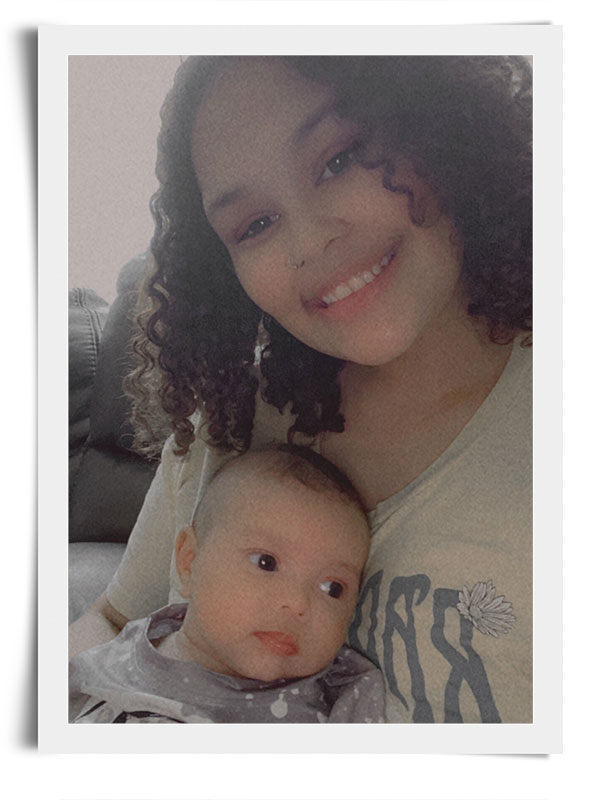
Taylor Weeden, 19, Murfreesboro, Tennessee
I had my baby in February, so it’s been hard to find formula from the beginning, but in the last two weeks, it’s gotten way harder. I did try to breastfeed, but I was never able to produce enough for her. I have no other choice. It’s overwhelming.
It’s been rough not being able to know if I’m going to be able to feed my baby or if I’m going to have to switch up her formula and worry about it messing up her stomach. I went to every grocery store where I live and found nothing. My sister has a baby less than a month younger than mine, and she’s going through the same thing.
When I can find it, I can’t hog it all because there’s other babies that need it too. But one can doesn’t last more than three days. When I’m getting low I’ll just go to a bunch of different stores until I find it. I don’t really think about what I’m going to do if I can’t find it. I can’t. I just go with the flow.
Finally I saw lots of people talking about it on TikTok, and I posted without really thinking about it. And this lady reached out and said she had the formula I was looking for and sent me two cans. That’s the best part of this is the other parents helping people. I would tell parents if they’re struggling to reach out on places like TikTok or even to family members in other states to see if they can help you find some. If it wasn’t for this post on TikTok, I probably would have had to change my baby’s formula and possibly mess up her stomach.
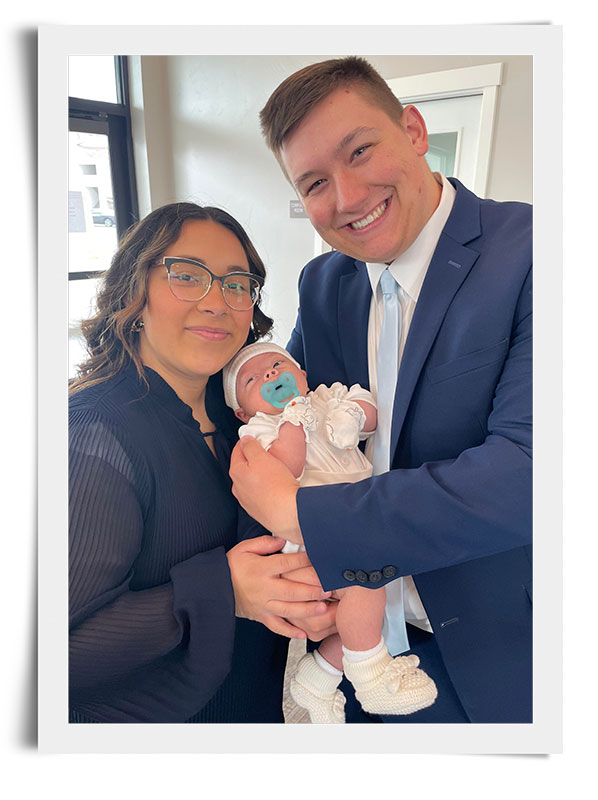
Jhoseline Sanchez Cornelison, 26, Idaho Falls, Idaho
We had my son back in February when all the recalls were going on, and I didn’t even know if the hospital was going to have any formula to give us. Luckily, they did, but we had to keep asking them for more so that we could have some saved up for when we actually got home because there was nothing on the shelves by then. My milk dried up super quick. So formula’s literally my only option.
My family qualified for the WIC program so we were able to get credits for formula. But the formula we can get through the program has to be from a certain lis, which made it even more difficult because the government doesn’t cover, like, organic ones. And of course, those were the only ones that were left on the shelves.
Read More: Desperate Women, Desperate Doctors and the Surprising History Behind the Breastfeeding Debate
I’ve searched high and low. I’ve probably looked at all of the stories in all of Eastern Idaho every day since the beginning of the month. I’ve even searched all the way up to the border of Idaho and Utah, Idaho and Wyoming. And it’s impossible to find anything right now. One way we’ve been getting some formula right now is through the pediatrician’s office. So you know, you just kind of get whatever you do.
It’s so scary, especially as a first-time mom. I get into my head and am like, “Oh, I should have bought formula before he was even born.” You start tearing yourself down because you don’t have formula to feed your child. Our pediatrician told us to reach out to local hospitals, and they don’t have anything to give. Everything they have is going to newborn babies, which I totally understand.
My sister-in-law is due any day now, and she’s freaking out a little bit with me. They are trying to get any sort of formula they can right now just to stock up when they have their baby because you never know what your children will end up needing as far as formula. They could have a milk allergy or just be very colicky. Our boy is a very colicky baby and has dealt with a lot of acid reflux maybe. I think it’s the change of different formulas that we’re giving him because we give him whatever is left. I’m sure it’s tough on his tummy.
We’ve got groups on Facebook that have somewhat helped, but even then, when moms who are trying to help post, you have to hop on it that second or you miss your opportunity. I have hope that the manufacturers will catch up, but it feels endless right now.
Gayle Patasnik, 37, Astoria, New York
My son is 6 months and he has been formula fed since he was born. I made a decision that he was going to be formula fed from the beginning. Originally we just went straight with the formula they gave us at the hospital, so we were using Similac Pro-Advance. It worked for him, so I never changed it. We were getting it in stock from Amazon, and we were on a subscription so it would just come monthly. I didn’t even realize there was a shortage until his last can was about to be up and I was like, “That’s weird. Where’s our Amazon package?”
And I realized it wasn’t coming. That was about two weeks ago. Then I realized it was nowhere, so that was a bit of a concern. I called a bunch of stores in Astoria, and nobody had it in.
I went to Costco to see if they had something, and they had similar items. After speaking with our pediatrician, I knew that I could give him the Enfamil equivalent and it would be fine. So I was able to find that. I’m lucky because he’s a kid that’ll drink other varieties versus a baby that would be pickier or have an allergy. It’s pure luck at this point. But that doesn’t make it any less stressful because, of course, there’s Enfamil shortages also.
We have friends whose babies are turning one, and we’ve been gifted some formula, which has been very helpful. I’m in an Astoria moms Facebook group, and I’ve noticed people offering extra formula to people in the neighborhood. It’s actually really nice to see the community come together.
More Must-Reads From TIME
- The 100 Most Influential People of 2024
- Coco Gauff Is Playing for Herself Now
- Scenes From Pro-Palestinian Encampments Across U.S. Universities
- 6 Compliments That Land Every Time
- If You're Dating Right Now , You're Brave: Column
- The AI That Could Heal a Divided Internet
- Fallout Is a Brilliant Model for the Future of Video Game Adaptations
- Want Weekly Recs on What to Watch, Read, and More? Sign Up for Worth Your Time
Write to Eliana Dockterman at eliana.dockterman@time.com